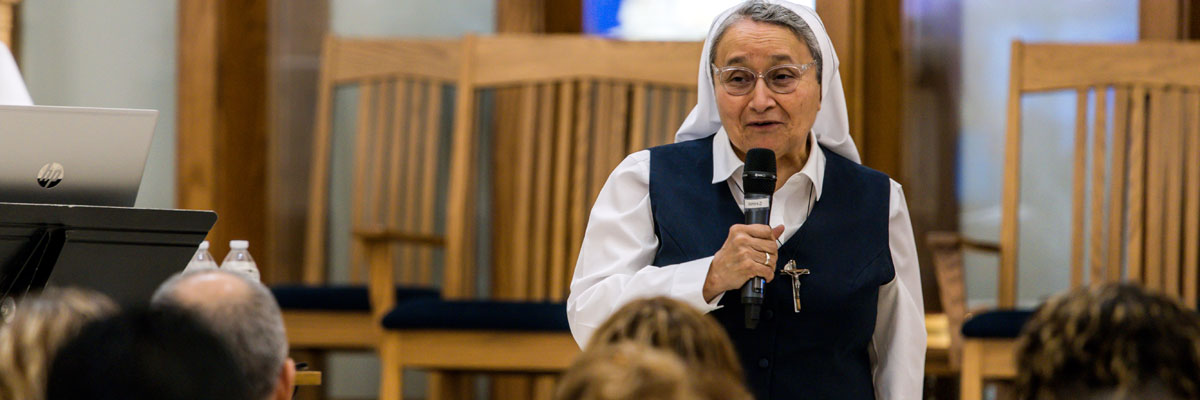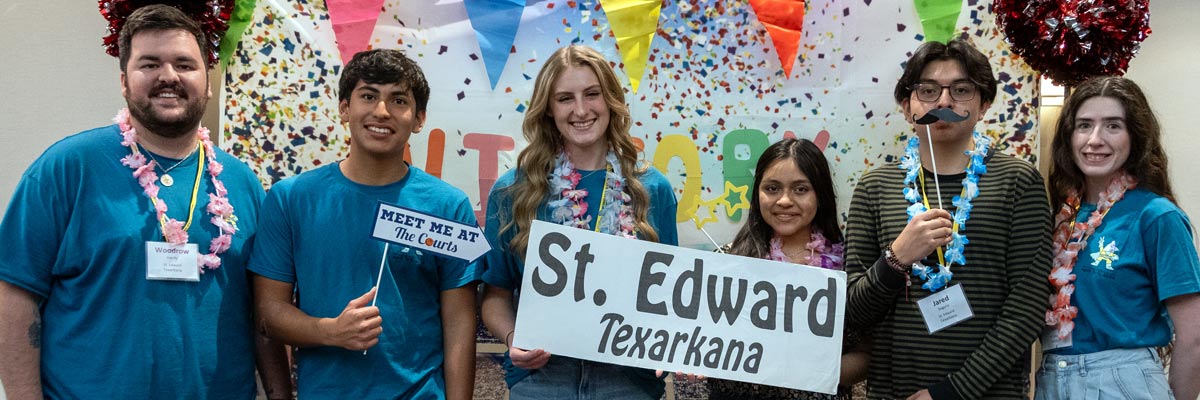Official Website of the
Catholic Diocese of Little Rock
From Conflict to Fellowship: Lutheran-Catholic Common Commemoration of the Reformation
Published: October 30, 2017
Bishop Anthony B. Taylor preached the following homily during a joint prayer service to reflect on the 500th anniversary of the Protestant Reformation at the Cathedral of St. Andrew in Little Rock on Monday, Oct. 30, 2017.

Bishop Taylor
We are gathered today on the 500th anniversary of one of the two most painful ruptures in the 2,000 year history of Christianity. The first was the split between Eastern and Western Christianity in 1054. The second, which we commemorate today, was the split within Western Christianity starting on Oct. 31, 2017 — 500 years ago tomorrow.
As we all know, the following 450 years were a tragic time: First there were bitter religious wars and then centuries of mutual disdain and incomprehension. Martin Luther was right to call for reforms and eventually the Catholic Church did respond, especially with the Council of Trent, which corrected many areas of corruption and abuse within the Church.
Unfortunately this council didn’t end until 1563 — 46 years too late. And then of course there was the Second Vatican Council, which updated many areas of Church life, including the introduction of worship in the vernacular — a matter dear to Martin Luther’s heart.
We’ve come a long way together in the last 50 years, but we’ve still got a long way to go before Christian unity can be fully restored and this wound in the heart of the Church healed.
Vatican II ended in 1965, just a little over 50 years ago, and its Decree on Ecumenism was a real game-changer, at least on the Catholic side of the equation. Lutheran-Catholic dialogue began in July 1964, while Vatican II was still in session, and has continued to take place ever since.
On the world-wide level there have been over 50 sessions involving representatives of the Lutheran World Federation and representatives of the Pontifical Council for Promoting Christian Unity. And in the United States there have been corresponding local conversations, especially between representatives of the Evangelical Lutheran Church in American and the U.S. Bishops’ Committee on Ecumenical and Interreligious Affairs.
The greatest single accomplishments of our dialogue so far have been our joint statements on the doctrine of Justification by Faith in 1983 and our joint statement on the Doctrine of Justification itself in 1999 — thus resolving two of the most neuralgic points of theological disagreement going all the way back to the time of Martin Luther and the Council of Trent.
And who could forget Pope Francis’ participation in an ecumenical prayer service with Bishop Munib A. Younan, current president of the Lutheran World Federation, at the Lutheran Cathedral in Lund, Sweden — which had once been a Catholic cathedral — exactly one year ago tomorrow, on the 499th anniversary of the beginning of the Protestant Reformation.
We’ve come a long way together in the last 50 years, but we’ve still got a long way to go before Christian unity can be fully restored and this wound in the heart of the Church healed. This year’s Declaration on the Way produced through Lutheran-Catholic dialogue in the United States has only been fully endorsed by the Evangelical Lutheran Church in America, but even so it does point out many areas of agreement in the life and theology of our churches.
In this we rejoice; great gains have been made. Still — unfortunately — many church-dividing topics do remain, especially: 1.) regarding the Eucharist and the other sacraments as the foundation of the life of the Church; 2.) regarding apostolicity and ordained ministry, including regarding who can be ordained; 3.) regarding the mode of Christ’s presence in the Eucharist, and; 4.) consequently regarding the possibility of increased opportunities for eucharistic sharing. So we’ve still got a long ways to go.
Today we have gathered to thank the Lord for the remarkable progress that he has enabled us to make over the course of the last 50 years and to pray for the ongoing guidance of the Holy Spirit as we journey together in the years to come.
I am confident that the same Lord who has shown us the way through 500 years of misunderstanding regarding justification by faith and regarding our theology of justification itself, will in his own good time help us to find a way to each other in all the other areas where our theology and consequent practice continue to diverge.









